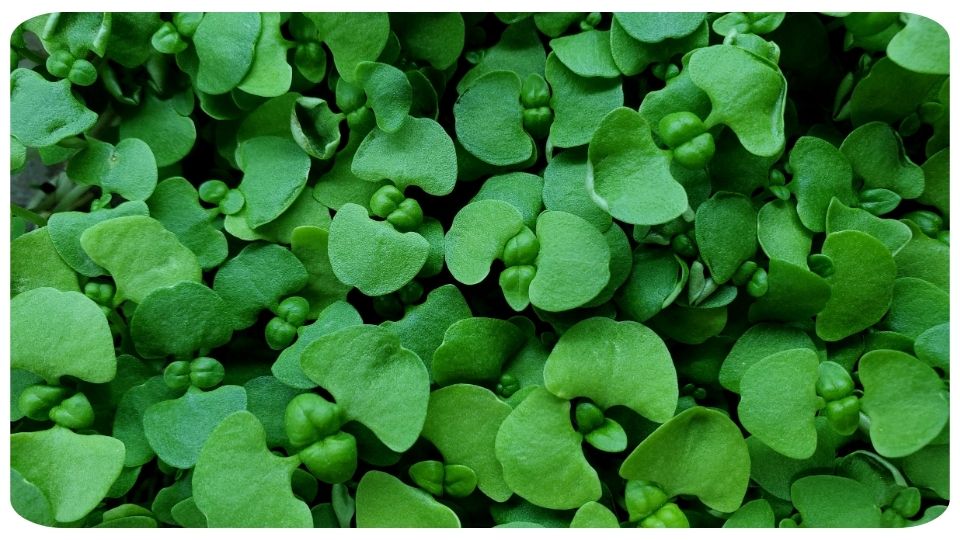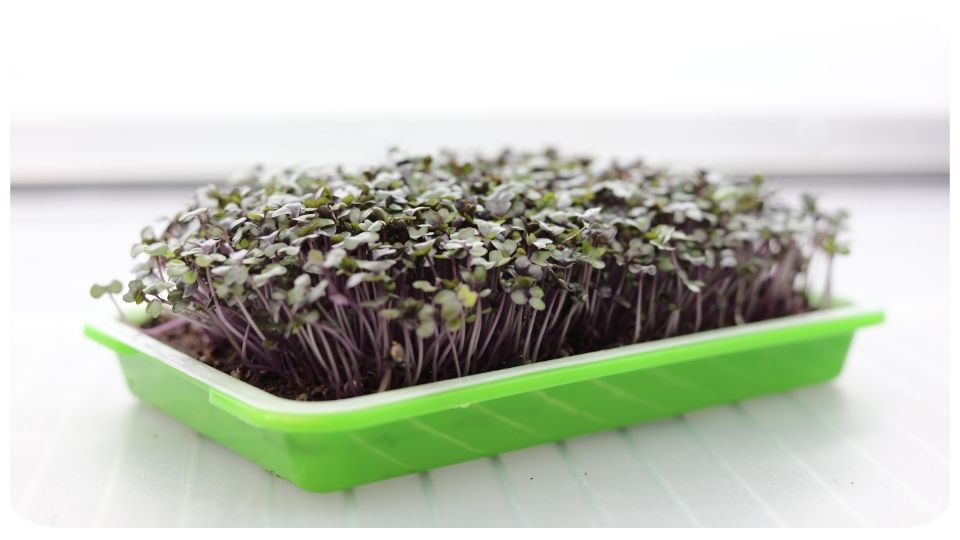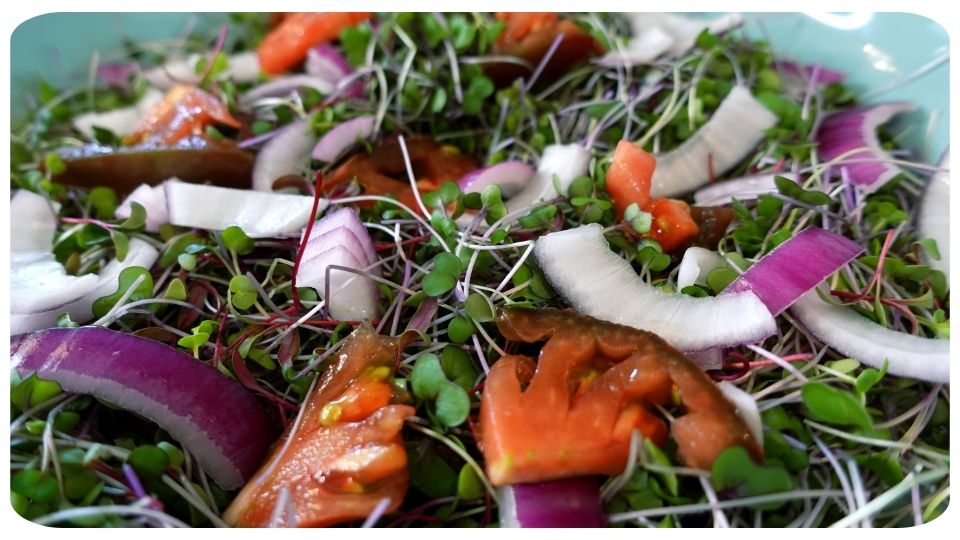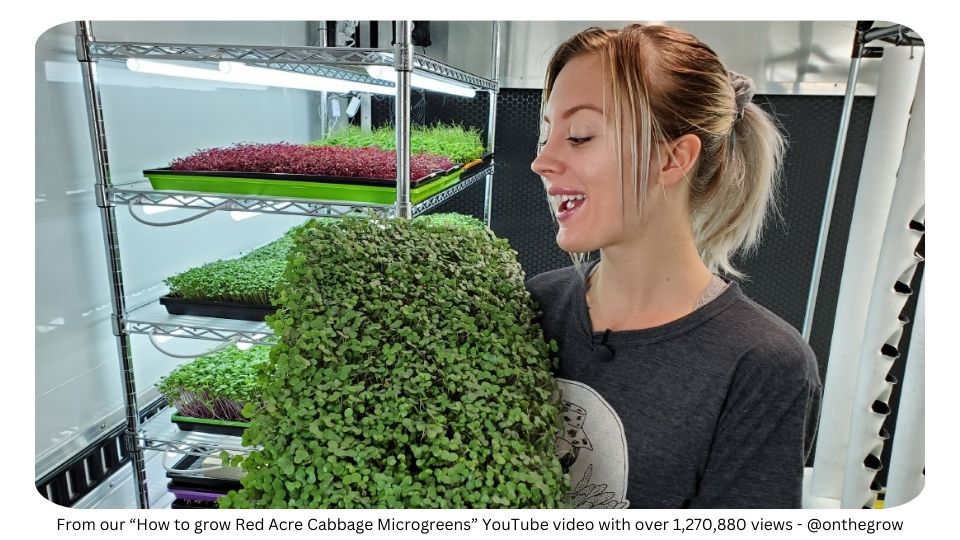The Mental Health Benefits of Microgreen Nutrition and Growing Microgreens
In our fast-paced world, maintaining mental health is as crucial as maintaining physical health. We, as small business owners, YouTubers, entrepreneurs and individuals navigating the ebbs and flows of life, we understand deeply the impact that mental health can have on our day-to-day activities. Seeing that May is Mental Health Awareness Month—a topic of great importance to us—we thought it would be interesting to explore how growing and consuming microgreens could potentially enhance mental wellness. These tiny but mighty plants are not just trendy cash crops; they are densely packed with nutrients and offer several potential mental health advantages. This blog post will take a look into how incorporating microgreens into our diets and daily routines could be beneficial, including insights from a recent study by Di Gioia et al.
Microgreens: A Hub of Vital Nutrients

Let's start at the basics... what are microgreens?
Microgreens are young vegetable greens that are approximately 1–3 inches tall. They are the intermediate stage between sprouts and a full-grown plant. Despite their small size, microgreens are exceptionally nutrient-dense and often contain higher levels of vitamins, minerals, and antioxidants than their mature counterparts. Here’s how these nutrients could support mental health:
- Vitamins such as C, E, and K: Microgreens are rich in these vitamins which play a crucial role in brain health. Vitamin C helps in the synthesis of neurotransmitters that affect mood regulation such as serotonin. Vitamin E acts as an antioxidant that protects cells from oxidative stress, a contributor to cognitive decline. Vitamin K is essential for the production of sphingolipids, a class of compounds that form part of brain cell membranes. (USDA Agricultural Research Service)
- Beta-carotene: Found abundantly in many microgreens, beta-carotene is converted into Vitamin A, which is crucial for maintaining healthy vision and neurological function. (Healthline Nutrition)
- Iron: Essential for creating energy from nutrients, iron also helps in the development of brain cells and the production of neurotransmitters. (National Institutes of Health)
Recent Study Insights

A study conducted by Di Gioia et al. on 17 microgreen species highlights the significant genetic variation in mineral content among microgreens. The research found:
- High Nutrient Content: "Microgreens exhibit high levels of nitrates and are excellent sources of potassium, calcium, and iron—nutrients essential for mental health."
- Specific Benefits by Species: "Species like scallion, red cabbage, amaranth, and Genovese basil are particularly noted for their calcium and iron content, which are crucial for cognitive functions and mood regulation."
-
Biofortification Potential: "The study suggests that microgreens can be biofortified to enhance their nutrient profiles, particularly with zinc, to improve their health benefits."
*tray seen in photo above is our Small Sprouting Tray Kit*
Mental Health Benefits of Consuming Microgreens

- Mood Enhancement: The rich nutrient profile of microgreens can help in maintaining adequate levels of neurotransmitters associated with mood regulation, such as dopamine and serotonin. This could potentially aid in preventing mood disorders such as depression and anxiety.
- Stress Reduction: The antioxidants present in microgreens can reduce oxidative stress, which is linked to mental health disorders including anxiety and depression. (PubMed)
- Cognitive Function: Regular consumption of nutrient-dense foods like microgreens may contribute to enhanced cognitive functions, including improved memory and sharper attention.
Mental Health Benefits of Growing Microgreens
- Therapeutic Activity: Engaging in gardening activities like growing microgreens can significantly reduce stress, anxiety, and depression. The process of nurturing plants and watching them grow can provide a sense of calm and accomplishment. (American Horticultural Therapy Association)
- Sense of Achievement: Harvesting your own microgreens can boost self-esteem and confidence. Completing the cycle from seed to plate provides a unique sense of accomplishment and can improve one’s mood and emotional well-being.
- Connection to Nature: Regular interaction with plants, even small indoor gardens of microgreens, can significantly impact mental health by reducing stress and improving mood. (Mind, the mental health charity)
Conclusion
Incorporating microgreens into our diets and engaging in their cultivation offers a holistic approach to improving mental health. These small greens are not just beneficial as a dietary supplement; they represent a key component of a comprehensive mental wellness strategy. As we observe Mental Health Awareness Month, let’s consider the potent potential of these tiny greens in supporting our mental health.
Note
The information provided here is based on general knowledge and widely accepted scientific research regarding microgreens. The information provided in this blog is for educational and informational purposes only and is not intended as health or business advice. While we strive to provide accurate and up-to-date information, the content may not reflect the most current research or medical developments. The information on this blog should not be used as a substitute for professional advice from a qualified healthcare provider or business consultant. We encourage all readers to consult appropriate professionals before making any health or business decisions. We do not accept any responsibility for any decisions made based on the information provided on this blog.

